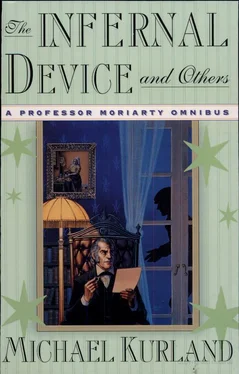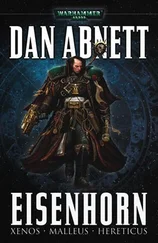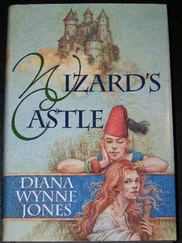"What for?" Moriarty asked.
"What do you mean, what for? To find Cecily. Nobody else seems even to be looking."
"I shall remedy that," Moriarty said. "I'll put a telegram in at the desk, and there will be five hundred people out looking for her in an hour."
"I say, you chaps really do seem to be taking this thing seriously," Inglestone said. "You don't actually suppose that anything nasty has happened to the young lady, do you?" He chuckled. "Well, if it has, it would serve old Caterby-Cahors right, I'll tell you."
Barnett stared incredulously at Inglestone for a second, not sure he had heard right. How callous it was possible to be about someone one didn't know very well. And Inglestone didn't seem to think he had said anything at all strange.
"I'd better pass the telegram in now," Moriarty said, rising and heading for the door. "Meet you in the lobby, Barnett."
Barnett also rose. "Very good chatting with you, Inglestone," he said. "We must do it again sometime. You don't mind paying, do you? There's a good chap!" And with that, he slapped Inglestone on the back and hurried after Moriarty.
"I say!" Inglestone exclaimed.
"I really think I should go back to London," Barnett told Moriarty, catching up to him in the lobby.
"I have given a telegram to the porter," Moriarty said. "It will be clacking its ways over the wires in ten minutes and will be delivered to 64 Russell Square within the hour. It is now ten o'clock. Before midnight, five hundred people will be searching for the young lady. By tomorrow morning the first report on the search will be awaiting me at the desk of this hotel. If there is any definite word on her whereabouts earlier, I will be immediately notified. Believe me, Barnett, I know how you feel; but no more could be done if you were present, and I need you here."
"I appreciate that," Barnett said. "I certainly don't want to desert you. But we both know that any of fifty men could do what you would have me do tomorrow. I am not in any way essential to your plan. I should get on the next train to London."
Moriarty put his hand on Barnett's shoulder and peered at him intently. "Understand me," he said. "I am not an unfeeling man. If there were anything that you could do in London that would further the search for Cecily Perrine, I would hire a special for you and put you on it. If there were any way in which my presence would help, I would join you."
"Thank you, Professor," Barnett said. "I'm sure you're right; and I appreciate what you say more than I can tell you. It's just that—"
"Furthermore," Moriarty said, "whatever your opinion of yourself, the fact is that I do need you here. You are not irreplaceable, but you are intelligent, competent, and resourceful, and the man with whom I would have to replace you might lack one or more of those virtues.
"I pledge you this, Barnett: if any word comes of Miss Perrine— at all — and it seems desirable for you to go to London, I'll have that special put on for you immediately. In any case, we shall both be on the next regular train for London. I shall leave it midway, but you will go on through."
"The next train?" Barnett asked.
"Yes. There are no more trains scheduled tonight, and the first train out tomorrow morning is the, let's see" — he pulled out his schedule—"the six-oh-eight doesn't run on Saturdays, so we shall be on the seven-forty-two. Will that suffice?"
"I suppose," Barnett said unhappily, "that it will have to."
He slept fitfully that night. If asked, he would have sworn that he slept not at all. Complex images kept springing into his mind, unbidden. Images of the myriad ways in which Cecily, by chance or by design, could have discovered the mysterious murderer. And then the image would unfold and become horrible, as the murderer, in turn, found Cecily. Barnett's mind rebelled from the worst possibilities, but even the ones his mind would accept did not bear dwelling upon.
The loading of the treasure was set to begin an hour before sunrise, which, according to Whitaker's Almanack, would occur at 5:42. And so at a little after four in the damp, chilly morning of the first Saturday in April, Barnett found himself dressing by candlelight so that he could go to watch large, heavily guarded boxes being loaded onto goods wagons in the predawn blackness for transport to London. And do his small part in seeing that they did not arrive.
The reporters, sketch artists, and such of the idly curious as could drag themselves out of bed at such an hour were to be assembled on a three-tiered grandstand specially erected in the goods yard for the event. This would give them a splendid view of the proceedings and yet keep them out of the way. The real crowds would gather later in the morning, when the military guard was added and the treasure train prepared to leave.
Barnett had wondered how they were going to move treasure from the ship to the goods wagons in the dark; even with the route marked with a line of lanterns, it would not seem a prudent procedure from the standpoint of security. And indeed, when he and Professor Moriarty arrived and took their seats in the front row of the grandstand, the brightest object around was the conductor's lantern, which was carried by the railway guard. There was no line of lanterns, and no apparent motion from what Barnett believed to be the direction of H.M.S. Hornblower, a quarter mile away at Stonehouse Basin. "Are we early?" he whispered to the guard, looking around at the ten or fifteen other people already in the stands.
"No sir, you'm jest a'time," the guard told him in a broad north-counties accent. And as if merely waiting for his word, the entire goods yard was suddenly bathed in an intense white light.
Barnett blinked, squinted, and shielded his eyes from the intense glare. "What on earth is that?" he asked no one in particular.
"They appear to have four Drummond apparatuses mounted in towers," Moriarty said. "We are now bathed in a light as bright as the sun, if rather more limited in scope."
"Drummond?" Barnett peered out from between his fingers. His eyes were starting to adjust now, and he could see slightly between his fingers as he shut off most of the light with his hands. The professor was right; except for the bizarre shadows cast by the four light sources, it could have been daylight within the limited area of the goods yard.
"The light is generated by application of a flame of hydrogen gas burned in a stream of oxygen to a core of calcium oxide. You should be intimately familiar with the principle, fond as you are of attending the music halls."
"Music halls?" Barnett asked.
"Calcium oxide is perhaps better known as lime," Moriarty explained.
"Limelight!"
"Correct. The same light that illuminates your favorite singers, jugglers, and acrobats, done on a much larger scale. This sort of Drummond apparatus is usually found in lighthouses, where the beam can be seen from twenty miles away. The only difference is the shape of the mirrored reflector; parabolic in lighthouses, and, I would assume, conical here. It covers a much wider field, you see."
"I see," Barnett said. And he was beginning to. He took his hands away from his face and looked around. "It's quite a shock, going from pitch-black to daylight in an instant. I'm not sure that the human eye was built to take that sort of transition."
The grandstand was now filling up rapidly with the gentlemen of the press. The area before them, a loading platform with one of the specially prepared goods wagons pulled up before it, was curiously devoid of life and motion. It reminded Barnett of a stage setting in the moments before the curtain went up on the first act. Which, he realized, was probably a fair assessment. Lord East had arranged this show for the press, and he was going to see that they got their money's worth. For whatever motive, Lord East craved the public eye, and he had spent thirty years learning how to stay in it.
Читать дальше












